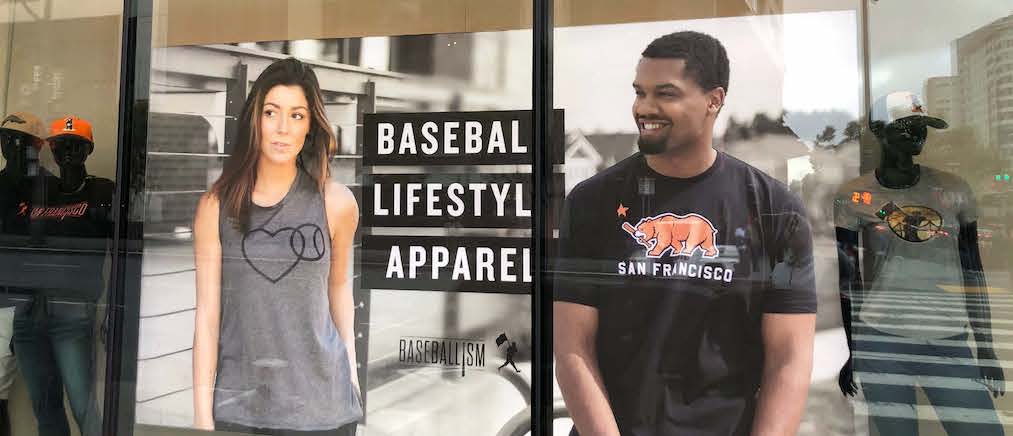Like many business owners, Jon Loomis began the year with high hopes and double digit growth. Baseballism, a Portland-based line of baseball-themed apparel and accessories, boasted nine locations across the country, and had just put the finishing touches on two more.
“We were ready for Opening Day,” says Loomis, Baseballism's CFO. And that obviously didn't happen.
Thanks to quick pivots and changing consumer demand, there are certainly some bright spots in the economy, even amid the COVID-19 pandemic, but the reality is that most business owners are simply trying to build a bridge to the other side of this unprecedented challenge.
Loomis and his team are doing just that. We recently sat down with him, to learn more about the shift from brick-and-mortar to online, how to make tough decisions in tough times, and what opening back up is starting to look like for retailers.
You were all set for baseball to kick off the 2020 season, which I imagine is a boon for business. Then coronavirus began spreading. What was your first move as we began shutting down?
What we did, which I think was really important, is that we brought back as much inventory from the stores as we could and consolidated it in our warehouse. That was a big win for us, because we had taken the approach of doing store-exclusive products. But we said, “Let's put it all online, give people something new.” We repatriated as much inventory as we could, posted online, and offered free shipping. We said, “You can't go to our stores right now, and we know shipping fees are one of the big factors that keep people from shopping online, so we're offering free shipping.”
I understand you created a limited-edition T-shirt to help support people on the front lines. How did that come about?
We wanted to offer a design that could be a fundraiser, to raise money for personal protective equipment. It was a home plate with a heart. Safe at Home was the tagline, encouraging people to stay home. We did $100,000 in sales for that one shirt, and proceeds went to PPE efforts. We said, “Let's be helpful in this environment.” There's not much we can do other than create awareness and give the money back to a good cause.
I imagine that good deed was rewarded by customers who added other items to their carts? Perhaps a lesson for other companies out there?
There were definitely add-on products. They'd buy the shirt and then they would buy other stuff. It was a win for everybody. Web traffic was up already and it gave people a reason to buy.
That being said, you've had to make some difficult decisions too.
We did have to furlough employees. We did two rounds. We had to really thin it down, unfortunately. Myself and my ownership group took on more tasks and shouldered more of the day-to-day. We've had a lot of good conversations and everyone understands the environment. The culture is still very strong with everything going on. Communication is key.
And, of course, you have stores sitting idly now. What's been your approach?
We negotiated with our landlords and talked about rent deferrals. We've had conversations and everyone's been accommodating and they're willing to work with you. We're all in this together. We might have to make it up later, and some of them haven't even defined that yet.
What is the most meaningful support you have received thus far?
The communication with our team. We're having briefings every day, focusing on the positive. What were the wins? We know things are tough, but what went well today?
I would also say, really lean on the relationship you have with your vendors. Try to find some amicable, mutually beneficial accommodations. Everyone's in this together and people know that, so what can you negotiate now that will allow you to hit the ground running when we open up? That could be negotiating a payment schedule, cross-promoting products together, and more. Be creative and be open. That's really important.
Like baseball, retail will be back eventually. What do you think that will look like?
In the short term, the industry is going to be very sensitive to the mechanics of how they enter the store, how they buy, etc., however, my perspective is that that's not going to last very long. I think people are going to go back to normal eventually, once a therapy and vaccine is found. I wouldn't say build a permanent business around this current way of life.
You have a unique challenge, in that you operate stores in some states that are starting to open up and some that remain closed. How are you handling that?
We do have a store in Georgia and we actually didn't furlough that manager because we want the option of opening, but we would open in a responsible way. We would ensure social distancing. We're part of a development there and the development might have rules on what we can and cannot do. So we're waiting. We want to see if people are actually going out. They might let you open up, but are people actually shopping? There's a sense of responsibility, and I think we still need to navigate that. It's tough. It's probably a wait-and-see.
Photo Credit: Baseballism




